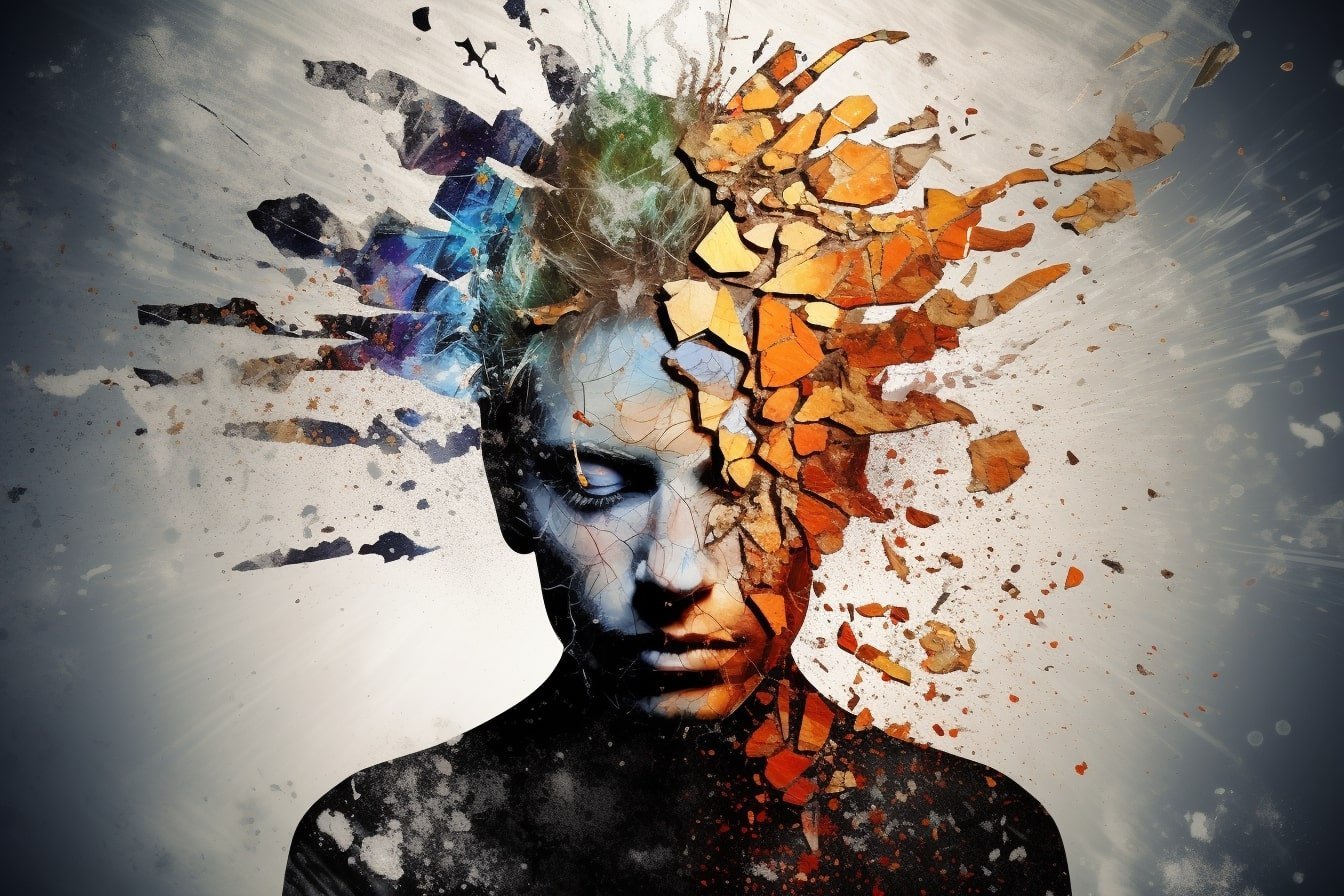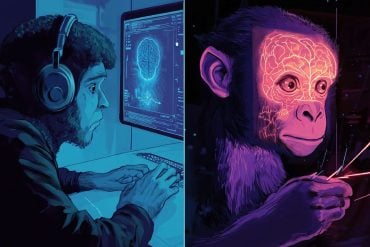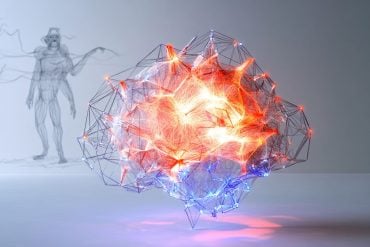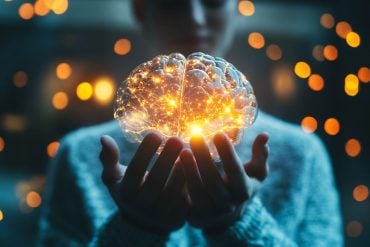Summary: A new study suggests that depression post-traumatic brain injury (TBI) may be a distinct disease separate from traditional major depressive disorder. This revelation, arising from unique patterns observed in brain maps of TBI patients, could revolutionize the treatment for such individuals.
The study proposes a new term for this variant of depression – “TBI affective syndrome”. Fundamentally, this research marks a significant step toward personalized treatment strategies for TBI patients.
Key Facts:
- Depression post-TBI might be a distinct disorder separate from traditional major depressive disorder.
- The study suggests the term “TBI affective syndrome” for this variant of depression.
- Personalized brain mapping revealed unique patterns in TBI patients, leading to the theory of this distinct depressive disorder.
Source: Brigham and Women’s Hospital
A new study led by Shan Siddiqi, MD, from Brigham and Women’s Hospital, a founding member of the Mass General Brigham healthcare system, suggests that depression after traumatic brain injury (TBI) could be a clinically distinct disorder rather than traditional major depressive disorder, with implications for patient treatment.
The findings are published in Science Translational Medicine.
“Our findings help explain how the physical trauma to specific brain circuits can lead to development of depression. If we’re right, it means that we should be treating depression after TBI like a distinct disease,” said corresponding author Shan Siddiqi, MD, of the Brigham’s Department of Psychiatry and Center for Brain Circuit Therapeutics.
“Many clinicians have suspected that this is a clinically distinct disorder with a unique pattern of symptoms and unique treatment response, including poor response to conventional antidepressants – but until now, we didn’t have clear physiological evidence to prove this.”
Siddiqi collaborated with researchers from Washington University in St. Louis, Duke University School of Medicine, the University of Padua, and the Uniformed Services University of the Health Sciences on the study.
The work started as a side project seven years ago when Siddiqi was motivated by a patient he shared with David Brody, MD, PhD, a co-author on the study and a neurologist at Uniformed Services University.
The two started a small clinical trial that used personalized brain mapping to target brain stimulation as a treatment for TBI patients with depression. In the process, they noticed a specific pattern of abnormalities in these patients’ brain maps.
The current study included 273 adults with TBI, usually from sports injuries, military injuries, or car accidents. People in this group were compared to other groups who did not have a TBI or depression, people with depression without TBI, and people with posttraumatic stress disorder.
Study participants went through a resting-state functional connectivity MRI, a brain scan that looks at how oxygen is moving in the brain. These scans gave information about oxygenation in up to 200,000 points in the brain at about 1,000 different points in time, leading to about 200 million data points in each person.
Based on this information, a machine learning algorithm was used to generate an individualized map of each person’s brain.
The location of the brain circuit involved in depression was the same among people with TBI as people without TBI, but the nature of the abnormalities was different.
Connectivity in this circuit was decreased in depression without TBI and was increased in TBI-associated depression. This implies that TBI-associated depression may be a different disease process, leading the study authors to propose a new name: “TBI affective syndrome.”
“I’ve always suspected it isn’t the same as regular major depressive disorder or other mental health conditions that are not related to traumatic brain injury,” said Brody. “There’s still a lot we don’t understand, but we’re starting to make progress.”
One limitation of the trial is that with so much data, the researchers were not able to do detailed assessments of each patient beyond brain mapping. As a future step, investigators would like to assess participants’ behavior in a more sophisticated way and potentially define different kinds of TBI-associated neuropsychiatric syndromes.
Siddiqi and Brody are also using this approach to develop personalized treatments. Originally, they set out to design a new treatment in which they used this brain mapping technology to target a specific brain region for people with TBI and depression, using transcranial magnetic stimulation (TMS).
They enrolled 15 people in the pilot and saw success with the treatment. Since then, they have received funding to replicate the study in a multicenter military trial.
“We hope our discovery guides a precision medicine approach to managing depression and mild TBI, and perhaps even intervene in neuro-vulnerable trauma survivors before the onset of chronic symptoms,” said Rajendra Morey, MD, a professor of psychiatry at Duke University School of Medicine, and co-author on the study.
About this TBI and depression research news
Author: Serena Bronda
Source: Brigham and Women’s Hospital
Contact: Serena Bronda – Brigham and Women’s Hospital
Image: The image is credited to Neuroscience News
Original Research: Open access.
“Precision functional MRI mapping reveals distinct connectivity patterns for depression associated with traumatic brain injury” by Shan Siddiqi et al. Science Translational Medicine
Abstract
Precision functional MRI mapping reveals distinct connectivity patterns for depression associated with traumatic brain injury
Depression associated with traumatic brain injury (TBI) is believed to be clinically distinct from primary major depressive disorder (MDD) and may be less responsive to conventional treatments.
Brain connectivity differences between the dorsal attention network (DAN), default mode network (DMN), and subgenual cingulate have been implicated in TBI and MDD.
To characterize these distinctions, we applied precision functional mapping of brain network connectivity to resting-state functional magnetic resonance imaging data from five published patient cohorts, four discovery cohorts (n = 93), and one replication cohort (n = 180).
We identified a distinct brain connectivity profile in TBI-associated depression that was independent of TBI, MDD, posttraumatic stress disorder (PTSD), depression severity, and cohort. TBI-associated depression was independently associated with decreased DAN–subgenual cingulate connectivity, increased DAN-DMN connectivity, and the combined effect of both.
This effect was stronger when using precision functional mapping relative to group-level network maps.
Our results support the possibility of a physiologically distinct “TBI affective syndrome,” which may benefit from individualized neuromodulation approaches to target its distinct neural circuitry.







